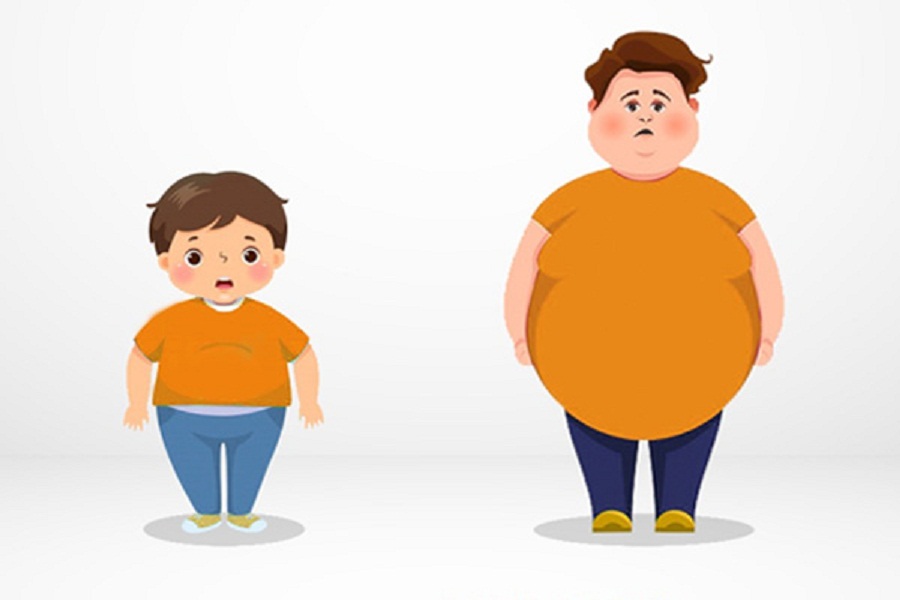
Published :
Updated :

Childhood is an important period for growth. As the kid gradually progresses to adolescence, the body experiences a lot of changes, including weight and height.
Nowadays, many children around are not hitting the proper mark in terms of weight. As obesity rises to epidemic proportions, more and more kids are suffering from the burden of extra weight.
Besides physical consequences, excess weight can also damage the child’s mental well-being.
According to a 2014 BMC Public Health journal publication, gaining weight early in life may be an early signal of later-life obesity.
Researchers from Oslo and Akershus University College of Applied Sciences conducted a study. They found that infancy and toddler stages are crucial in this respect. If the body weight is more than expected during these times, there is a high likelihood of remaining overweight later.
There are several misconceptions about childhood weight gain. Sometimes, the parents even fail to recognise it unless they maintain a growth chart as advised by the doctor. Even when it is identified, some parents may just brand it as baby fat, which will go away as the child ages. They think the weight problem will automatically take care of itself as the kid starts going to school.
This is completely wrong. If the kid is attaining more weight than is expected for the age and height, then it is a concern. Most likely, this problem will persist unless managed.
Weight issues will not be fixed if the parents are not proactive. Parents must remember the dangers of obesity. It can give rise to diabetes, heart problems and so on.
To ensure a healthy life for our children, their weight should be carefully monitored, and undue gains must be offset with healthy lifestyle choices.
Children should be taken to the doctor regularly to measure their growth. This will provide early detection of any abnormality. If the doctor detects additional weight, they can help the guardians devise healthy lifestyle habits for the kids.
To prevent the risk of overweight/obesity in children, there are certain things parents need to practice. A healthy diet containing lots of fruits, vegetables, and whole grains is a must.
Red meat should not be a regular item; instead, poultry, fish, etc., need to be added. Help inculcate the habit of drinking adequate water every day while cutting down on sugary beverages.
How the meals should be spaced? Breakfast, lunch and dinner are the main meals, with a mid-morning and mid-afternoon health snack in between. A small snack before sleep may be considered. Skipping meals is not a good practice, not even for weight loss.
Proper sleep is very important. Children need more sleep than adults. Teenagers require something between 8-10 hours. For younger kids, it can be anywhere between 10-14 hours.
We must make sure kids are not sedentary and are doing lots of physical activity. They should be active throughout the day between ages 3 to 5. Older children are required to be active for at least an hour each day. This should be built into family routine, and parents need to get involved in physical activity with the children.
It’s not okay for children to skip meals to lose weight. Fact: Skipping meals can lead to weight gain in children. When children skip meals, they may become overly hungry and overeat at the next meal.
Targeting a healthy weight in children goes a long way to keeping them healthy in the future. It requires a combined approach by parents, teachers, relatives, and doctors. Any aberrations must be quickly spotted, and appropriate interventions instituted promptly to avoid long-term negative consequences.
imtiazdmc@gmail.com


 For all latest news, follow The Financial Express Google News channel.
For all latest news, follow The Financial Express Google News channel.